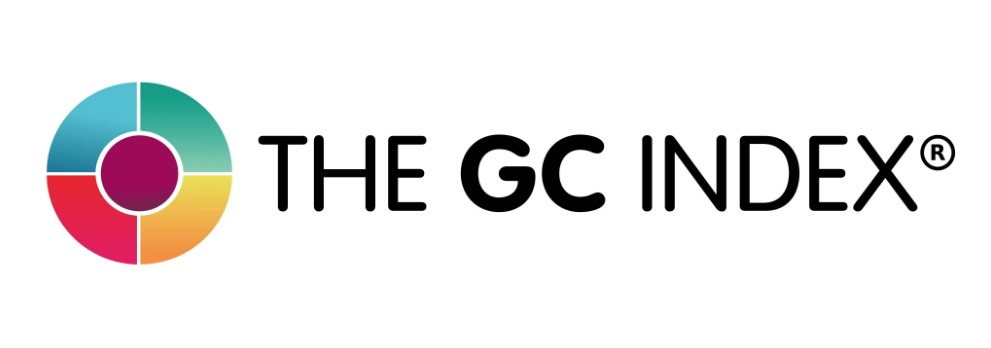Hiring the right candidates and nurturing them effectively remains a perennial challenge. According to Manpower Group, 75% of employers report difficulty in filling roles. This figure is corroborated by the 2023 Gartner CEO and Senior Business Executive Survey, which revealed that CEOs and CFOs are aligned on three key priorities: growth, technology and talent.
Clearly, talent is critical for the future development and profitability of organisations, and organisational success relies upon making the best people decisions. And yet, too often, the hiring process is conducted without the best available data.
It’s time to recalibrate the recruitment process
How often do we hear organisations talk about selecting candidates who are the right ‘cultural fit’? But what does this really mean? In truth, ‘cultural fit’ can simply be code for hiring people in the same image.
The danger here is that organisations will miss out on diversity of thought, champion challengers, and those with complementary skills – the people necessary to drive future-proof performance.
All too often we hear stories about failed hires, where individuals have been recruited based on qualifications.
It’s all about what is currently measured, and what isn’t. A typical recruitment process – whether for new recruits or existing employees – tends to consider three things when assessing candidates: expertise, experience and personality.
Tools exist to measure emotional intelligence, for example, or to profile personality. But for many organisations, one glaring omission remains – the ability to measure a person’s potential impact: their actual contribution to a role.
Measuring the impact of candidates
What do we mean by ‘impact’? In simple terms, we are referring to how people are energised to act – their potential to make a positive impact.
It is about providing a picture of what a candidate can do – their impact as opposed to their personality.
All too often we hear stories about failed hires, where individuals have been recruited based on qualifications and what they have done before. Just because someone has done the same role somewhere else doesn’t mean they enjoy it or have energy for this. And whilst the job role may have had the same name, what and how they were expected to deliver could be very different.
Instead, we need to ask the following questions:
- Why has this individual had success in their working life?
- How do they channel their energy for making a positive impact?
- What skills do they bring for maximising their impact?
- What can you and can’t you expect of them?
These questions are focused on the individual and the value they want to bring to a role, team and organisation. Our work with organisations shows that focusing on the impact employees and teams want to make means they are much more successful in creating an engaged, happy and impactful workforce.
We need to flip the recruitment conversation from ‘what does person X offer?’ to ‘what impact do we need?’.
HR heroes
It’s important to clarify and align the potential impact and contribution of all of your candidates and employees, individually and collectively, to organisational challenges and the delivery of operational objectives. In doing so, you will be much more successful in reducing siloed behaviour.
Creating more alignment and removing these silos will often result in improved efficiency, morale, and company culture. But how do people make an impact?
Five ways to make an impact
Our research identifies five key ways (we call them proclivities) in which people can make an impact in a role, a team and/or an organisation, namely:
1. Strategists – map the future
Strategists possess a unique ability to navigate complex challenges, plan for the future, enabling positive change for the world.
2. Game Changers – transform the future
Game changers are ideas driven. They see possibilities and ways of doing things that others don’t.
3. Implementers – build the future
Implementers are action and outcome focused. They will get things done and demonstrate a resilience to setbacks.
4. Play Makers – orchestrate the future
Play Makers are at their best when they are getting things done through others, they are the facilitators and orchestrators within a team.
5. Polishers – create a future to be proud of
Polishers believe things can always be improved and channel this optimistic drive into continuous improvements, innovations and the pursuit of excellence and perfection.
Aligning role and individual
We need to flip the recruitment conversation from ‘what does person X offer?’ to ‘what impact do we need?’.
Only when organisations understand how individuals and teams want to make an impact can they really align this to the impact that is required and start making strategic decisions about what talent they are missing.
For example, you may find your team is ‘packed full’ of Game Changers, who are incredibly ideas driven, but somewhat ‘light’ on Implementers – the individuals who really get things done. Having made this assessment, you will be much better placed to act strategically and know you need to hire an Implementer who is energised to get things done.
Recalibrating the recruitment process to focus on energy for impact leads naturally on to other major benefits.
Today’s organisations are moving beyond the somewhat static approach of having to fit a candidate to a fixed role. Instead, forward-thinking decisionmakers are shaping roles to harness the impact of individuals. This operational agility is simply not possible using a CV and personality instruments alone.
Recalibrating the recruitment process to focus on energy for impact leads naturally on to other major benefits. Any systemic unconscious bias around the hiring process is removed, resulting in an appropriately inclusive, and involving, workforce and culture, with all the performance benefits that such a culture affords.
Positively impacting your brand with sound people decisions
We have created The GC Index® – an Organimetric that provides rich data, backed by science. It enables HR to have a tangible impact upon people decisions that deliver organisational change and operational objectives.
Individuals are presented with 59 questions, and their answers determine an individual’s profile of proclivities and energy for impact.
The data informs the organisation as to which individuals dovetail most suitably with specific operational needs. It provides a language and framework that takes away all other biases that can unconsciously sway decisions.
If you would like to experience The GC Index® yourself with a complimentary link please get in touch: www.thegcindex.com







